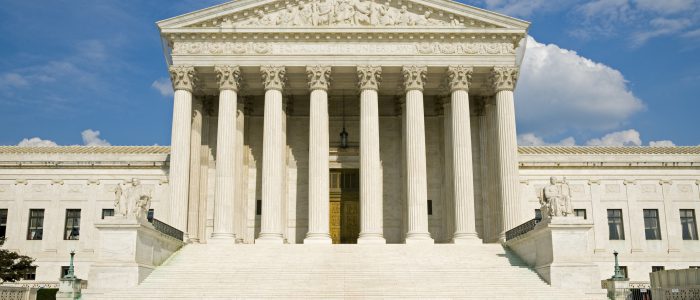
U.S. Supreme Court Makes Big Property Rights Decision
Landowners shouldn’t have to jump through state-level hoops before heading to federal court to accuse the government of taking their property, the Supreme Court ruled today in a decision that overturns a decades-old precedent.
In a 5-4 opinion(link is external), the justices sided with Pennsylvania resident Rose Mary Knick on a property rights issue likely to have ripple effects on land use and environmental regulations.
The fight centers on an alleged burial ground on Knick’s land in western Pennsylvania’s Scott Township. A local ordinance requires landowners to allow public access to old cemeteries and burial sites. Knick challenged the policy as a violation of her property rights but ran up against what many critics call a Catch-22 in takings litigation.
Under a 1985 Supreme Court precedent known as Williamson County, landowners must bring claims against local governments in state court before they can proceed to federal court. But legal rules generally prevent federal courts from re-reviewing already litigated cases.
The Supreme Court struck down the precedent today, a hard-fought victory for property rights advocates.
“We now conclude that the state-litigation requirement imposes an unjustifiable burden on takings plaintiffs, conflicts with the rest of our takings jurisprudence, and must be overruled,” Chief Justice John Roberts wrote for the majority, which included the rest of the court’s conservatives.
Roberts reasoned that landowners have a claim under the Fifth Amendment — which bars the government from taking property without compensation — as soon as the taking occurs and therefore have access to federal court right away.
Experts expect the ruling to have ramifications for similar challenges to local governments’ environmental regulations or land use plans — helping landowners get to federal court swiftly.
Case Western Reserve University law professor Jonathan Adler noted that landowners with takings challenges against the government will still have to meet a high bar in court, but he said the ruling may lead to other developments for property rights law.
“An important caveat is that the decision does not alter the substantive standard for evaluating regulatory takings claims, and such claims remain hard to win, but it ensures more landowners get their day in court,” he said.
Article originally posted by the National Association of REALTORS® and can be found on their website by clicking here.


